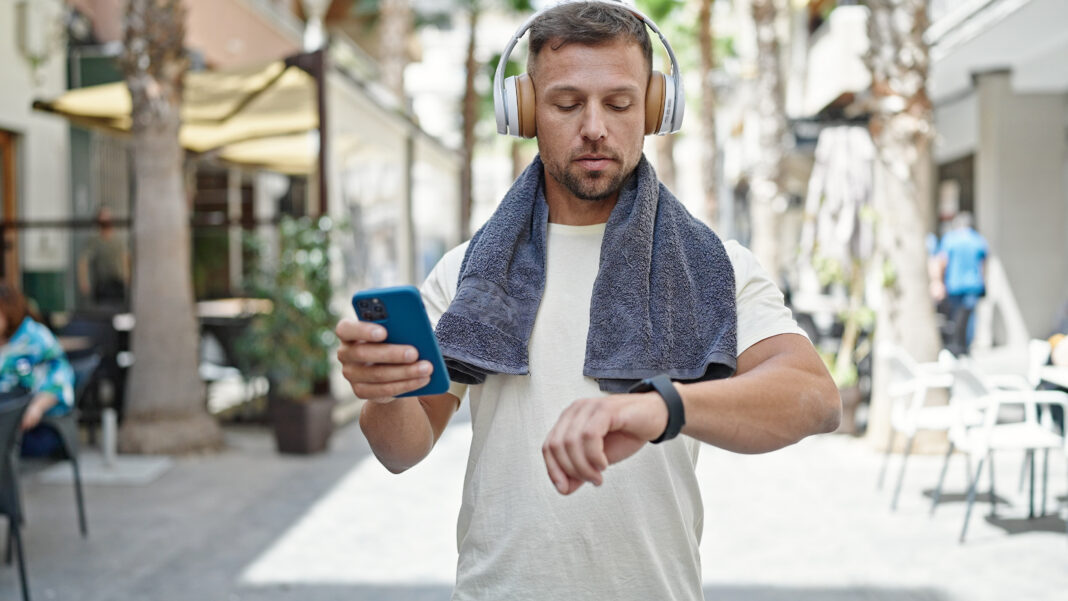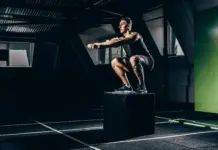Once upon a time, artificial intelligence was restricted to the realm of science fiction. Now it’s a part of our reality and is making waves in the fitness industry.
AI technology isn’t particularly new to fitness. It’s used in smartwatches, smart mirrors, e.g. Lululemon Studio Mirror, smart home gyms, e.g. Tempo Studio and Peloton systems. Apple is expanding its AI capabilities via Apple Watch software, allowing you to get nutrition, sleep, or workout tips. Fitness equipment companies have generated software to help you detect your reps, your speed, the weight you’re lifting and even your form in some cases.
With rapid advancements in automated technology, the question is whether AI could eventually replace personal trainers and group fitness programs.
Customization of AI
As someone who tests fitness equipment for a living, I have observed how AI has evolved.
Fitness apps are adapting AI technology to create a more customized experience, making it easier for you to work out anywhere and giving you a personalized-training feel. In some cases, an app or subscription platform may be more affordable than joining a gym or hiring an in-person trainer.
I’ve experimented with ChatGPT in fitness training and was surprised at how easily it generated a three-day workout program for beginners, separating it into full body, upper body, cardio, and rest days. The warm-up was mainly light cardio-based (jumping jacks) and didn’t include mobility or stretching to start or end the workouts, and it lacked rest time between sets, which is important.
For the most part, ChatGPT appears to know its limits. When I asked it to create a prenatal workout program, it responded: “Before beginning any prenatal workout program, it’s important to consult with your healthcare provider to ensure that it’s safe for you and your baby.”
Pros of AI
“The best benefit of AI in fitness is the ability to adjust training programs daily to account for external factors: stress, strain, sleep, recovery and readiness level,” said Amanda Capritto, a leading certified personal trainer on Garage Gyms expert panel.
Rishi Mandal, co-founder and CEO of Future, a personal training app, says one of AI’s greatest tools is data collection. “AI is helping with rep counting, form correction and, in particular, the use of biometrics to track if you’re achieving a lower heart rate doing the same workout.”
This is what makes AI stand out from a regular fitness app you download on your phone.
“Apps have historically taken more of a walled garden versus open-source approach, which could be limiting in a world where data is key to unlocking the power of AI,” explains Caliber app CEO and co-founder Jared Cluff.
He predicts AI software will get better over time and become a reliable way for people to create a workout program on their own.”AI is also starting to have more available options for evaluating and monitoring form,” says Capritto. For example, AI products like Perch use 3D cameras you can attach to a squat rack to measure the velocity of a barbell when it’s in use. “They then use this information to provide feedback on your form,” she says.
Other platforms, such as the app Juggernaut AI, can function as a powerlifting coach and create a program to improve your lifts. These programs are ideal if you want the personal trainer experience without having to hire one.
“For most people the value of a trainer extends well beyond the tactical role they play and is much more about the motivational role they play, which won’t be commoditized by AI anytime soon,” says Cluff.
In fact, AI can serve as a beneficial tool for trainers to better assist their clients.
“Constructing training programs and giving feedback with more individualized detail is at the forefront of what AI can do for trainers, instructors and coaches,” says Capritto.
Mandal says the Future app uses AI on the back end to improve the ideas and insights coaches have at their fingertips.
“When a client says they’re looking for exercises that can be done in their hotel room our coaches can search what regimens we have previously given to other clients looking for in-room workouts, and then coaches can weave exercise they like into the broader workouts they’re creating.”
Cons of AI
As with any new technology, there are some downsides.
“As much as AI can learn about someone based on their inputs, it can’t replace the human touch or understand anything about
a person other than their physical body and performance,” says Capritto.
Clients can discuss stress and energy levels, and any work / home problems which can help the trainer modify a workout if necessary. Good trainers evaluate injury issues and rehab to determine whether clients are ready to take on new challenges or if they should take things easy.
The best benefit of AI in fitness is the ability to adjust training programs daily to account for external factors
Future of AI
Mandal predicts AI will drastically change what fitness equipment looks like, for example, we might see multimodal workout machines that allow us to do new exercises in new ways. He also believes AI will help people understand their personal data, such as learning how their heart rate changes during various activities.
Cluff believes AI plays a big role in fitness but isn’t convinced that it will replace your personal trainer.
“Research has shown that the single most effective way to influence adult behavioural change is through having a human accountability partner,” he says. This includes having a gym buddy, attending a group fitness class, or using a personal trainer.
Don’t be surprised if you also see various fitness apps experimenting with AI. “I predict a number of applications of AI in fitness will be rushed to market and will ultimately fall flat with consumers,” warns Cluff. He says that if fitness apps are going to use AI, they’ll need to have a deep understanding of the needs of the user to provide them with something valuable.
Remember that artificial technology is helpful, but it can also make mistakes, so it’s important to approach it with caution. Whenever you’re in doubt, ask an expert or consult with a professional in the field before following new advice.
This article is edited for length and reprinted with permission by CNET and Giselle Castro-Sloboda.
You May Also Like – Eccentric Resistance Training

Read This Story in Our 2023 Fall Fitness & Food Issue
Featuring this year’s winners of the Amazing Race Canada, Ty Smith and Kat Kastner on our cover. Inside our latest issue, you’ll find all the inspiration you need to carry you through the autumn season. From delicious high-protein recipes and how to resist the crunch of potato chips to running through the high peaks of the Colorado Rockies and the latest in nutrition and fitness, these pages are packed with expert knowledge and advice.
















